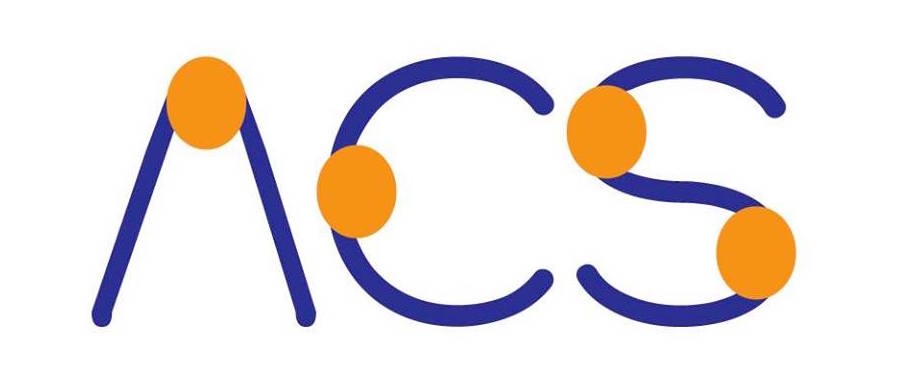นิทรรศการศิลปะร่วมสมัย
【 ปรากฏกลาย • Photomutagenesis 】
※ For English please scroll down.
Chim↑Pom (Tokyo, Japan)
Wimo Ambala Bayang (Yogyakarta, Indonesia)
Supapong Laodheerasiri (Chiang Rai, Thailand)
■ 2 ธันวาคม 2560 – 4 กุมภาพันธ์ 2561
■ The Laboratory Hotel ถ.ศิริมังคลาจารย์ (10:00 – 21:00 น. ทุกวัน)
■ Asian Culture Station ถ.นิมมานเหมินท์ (11:00 – 19:00 น. วันพุธ – วันอาทิตย์)
■ การบรรยายโดย Wimo Ambala Bayang ศิลปินชาวอินโดนีเซีย
วันเสาร์ที่ 2 ธันวาคม 2560 เวลา 17:00 – 19:00 น.
ที่ Asian Culture Station ถ.นิมมานเหมินท์ จ.เชียงใหม่
■ เปิดนิทรรศการ: วันเสาร์ที่ 2 ธันวาคม 2560 เวลา 19:00 น. เป็นต้นไป
ที่ The Laboratory Hotel เลขที่ 64 ถ.ศิริมังคลาจารย์ อ.เมือง
จ.เชียงใหม่
แสง มักจะปรากฏขึ้นในการเล่าถึง
Asian Culture Station ขอเสนอ ปรากฏกลาย • Photomutagenesis นิทรรศการของงานศิลปะร่วมสม
เมื่อปี 1997 แสงวาบจากโทรทัศน์ที่ถ่ายทอ
Belanda Sudah Dekat! พวกวิลันดาบุกมาแล้ว! ในยุคสมัยของการต่อสู้เพื่อ
การกลายพันธุ์ไม่ได้เกิดขึ้
จัดโดย Asian Culture Station ในเชียงใหม่ องค์กรในความร่วมมือระหว่าง
ค้นคว้าและกำกับนิทรรศการ: อธิคม มุกดาประกร
ประสานงาน: วราสินี จันทร์สว่าง
ที่ปรึกษานิทรรศการ: สุทธิรัตน์ ศุภปริญญา
ติดตั้งนิทรรศการ: Suiboy — วิภูพงศ์ จิระประภูศักดิ์, กีรติ กุสาวดี, ธนยศ รูปขจร และ อดิเทพ ดุกสุขแก้ว
แปลเอกสาร: พิริยาภา พุฒสงคราม
—-
A contemporary art exhibition
ปรากฏกลาย • Photomutagenesis
Chim↑Pom (Tokyo, Japan)
Wimo Ambala Bayang (Yogyakarta, Indonesia)
Supapong Laodheerasiri (Chiang Rai, Thailand)
■ 2 December 2017 – 4 February 2018
■ The Laboratory Hotel, Sirimangkalajarn Road (10 am – 11 am, everyday)
■ Asian Culture Station, Nimmanhemin Road (11 am – 7 pm, Wed – Sun)
■ The lecture by Wimo Ambala Bayang, an artist from Indonesia
Saturday, December 2, 2017, 5 – 7 pm
at Asian Culture Station (Nimmanhemin Road, Chiang Mai)
■ Opening reception:
Saturday, December 2, 2017 from 7pm onward
at The Laboratory Hotel (64 Sirimangkalajarn Road, Suthep, Muang, Chiang Mai)
“Light” is ubiquitous in the narratives of change, such as “Let there be light” (Genesis 1:3), the Age of Enlightenment, or even a dream to see the day when “when there is bright golden sky, the people shall rise to power” (Thai poem composed during the 1973 Thai popular uprising). In fact, light invariably influences life in both figurative and literal senses. Some types of light act as a mutagen—an agent that compresses a million years of evolution into one generation, enabling us to witness evolutionary change in our lifetime. As the global economic, social, and environmental dynamics have become increasingly volatile, our current state of being might no longer be sufficient to ensure our survival. We, therefore, resort to holding on to a belief that one day a great light will shine and, faster than ever, finally turn our deepest wishes into reality.
Asian Culture Station is delighted to present “Photomutagenesis”, a contemporary art exhibition about change, in which subjects transcend their original state to acquire new status and power relative to light. These objects were selected from the sun-blessed lands—Japan (also known as Land of the Rising Sun) and Southeast Asia (known in Thai as “Ushaganeya” or the sun-showered region)—to reciprocally reflect the desired status as a human being in both selected areas upon each other.
In 1997, bright flashes of light from the TV screens showing Pokémon, a Japanese animation, not only gave an electric shock to the protagonist’s enemy, but also simultaneously triggered seizures in many kids who were watching intently from different locations. Subsequently, the anime’s main character like Pikachu was widely mentioned and recognized as a fantasy creature with increasingly higher cultural power. On the contrary, a Japanese artist collective, Chim↑Pom, has patrolled Shibuya district many times since 2006 to capture a new breed of genetically mutated rats caused by ratsbane. These rodents can survive and thrive well amongst a society ruled by humans, thus receiving a nickname of ‘Super Rat’ by pest controllers. Chim↑Pom created an installation of taxidermied Super Rats that were painted as ugly Pikachu. This project symbolizes the state of being an outsider who lives bravely amongst Japanese society, while also satirizing the risk of mutations in the Post-3/11 era.
Belanda Sudah Dekat! (The Dutch Draw Nearer!) During the fight for independence, the PKI (Communist Party of Indonesia) came up with an idea to turn farmers and laborers into their allies to get rid of the imperial power by designating them as the “fifth force” of the National Security Forces. This idea later disappeared with the elimination of the PKI during the Cold War. However, currently living peacefully and often being accused of over compliance and passivity, some local Indonesians suddenly appeared carrying plastic guns. They have enthusiastically turned into the 6th, 7th, 8th,…Brigade in a series of photographs by Wimo Ambala Bayang. This project alludes to the remains of Indonesia’s colonial past and what locks them in the present, against the setting that was intended to be futuristic, but does not really resemble one.
Mutation is not exclusive to living organisms. Familiar protest signs expressing protestors’ intentions from all over the world have been reused by Supapong Laodheerasiri to interact with political movements in Thailand in 2013-14. All kinds of protest signs have been transformed, from beautiful objects that convey the people’s discontent messages into a forbidden instrument, even when the signs are blank. Just when the coup took place, the artist created two sets of signs to express what would happen after this political transition to remind us to take a retrospective look at past slogans and promises made during the military rule, in comparison with the current reality to determine what exactly has mutated.
Researcher & director: Atikom Mukdaprakorn
Coordinator: Warasinee Chansawang
Advisor: Sutthirat Supaparinya
Photographer: Apiwat Singharach
Model: Thanyaluck Jaipanya
Installation: Suiboy — Wipoopong Jiraprapoosak, Geerati Gusawadee, Thanayos Roopkhajorn, and Adithep Duksukkaew
Text translator: Piriyapa Putsongkram
